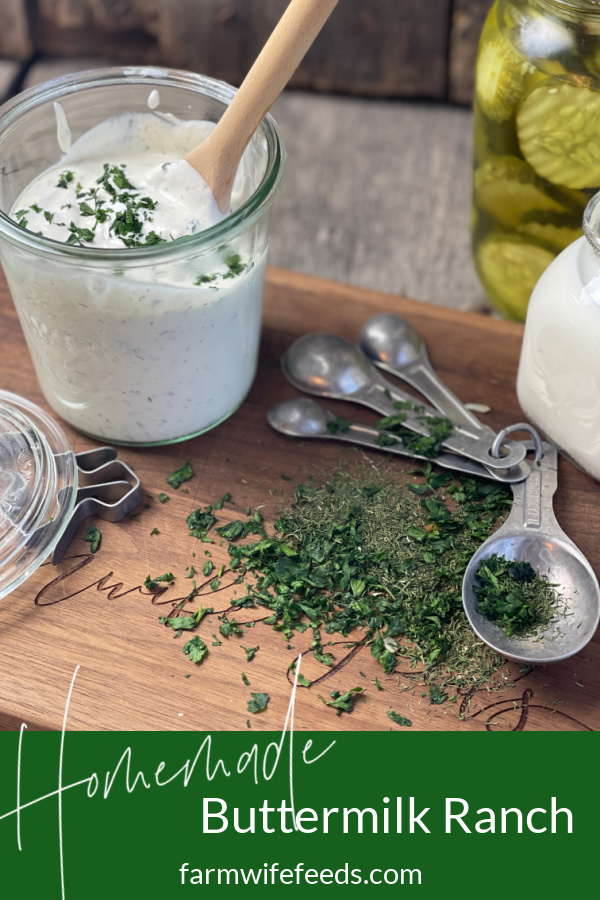For The Love Of Buttermilk
As an Amazon Associate and member of other affiliate programs, we earn from qualifying purchases.
Discover the magic of buttermilk! Your ultimate guide to this vesatile ingredient and delicious recipes that use it. For the love of buttermilk!
Ah, buttermilk, the unsung, underrated hero hanging out in your fridge, or at least it should be! Did you know this tangy wonder can do so much? From tenderizing fried chicken to biscuits tender, buttermilk is the secret ingredient that’s easy to keep on hand.
So you’re all in and ready to get to know Buttermilk. Got leftovers after using some for a recipe? I got your back – let’s talk about freezing it for later! Don’t have any when you really need it? We are gonna cover substitutions that really work. Stick around; I’ll turn you into a buttermilk savant!
What Is Buttermilk, and How Is It Different?
Buttermilk is a fermented dairy product with a tangy flavor and slightly thicker texture than regular milk. Traditionally, it was the liquid leftover after churning butter from cream, hence the name “buttermilk”. This leftover liquid is tangy and slightly acidic, making it perfect for cooking and baking. However, modern buttermilk is typically cultured, meaning bacterial cultures are added to low-fat or skim milk to ferment it, giving it a tangy flavor and thick texture similar to the traditional version. This process ensures consistency in flavor and thick texture similar to the traditional version. This process ensures consistency in flavor and availabitly, as most people don’t churn their own butter these days – but if you do, kudos!!
Let’s break down how buttermilk is different from other dairy products:
- Regular Milk: Unlike buttermilk, regular milk doesn’t undergo fermentation and lacks the acidity that makes buttermilk a standout in recipes.
- Cream: Cream has a much higher fat content than buttermilk. While cream adds richness to recipes, buttermilk provides stand and lightness, especially in baked goods.
The acidity in buttermilk is the key to its magic. It reacts with leavening agents like baking soda and baking powder, creating air bubbles that make baked goods rise perfectly. Buttermilk also tenderizes proteins in marinades, making it a favorite for recipes like fried chicken.
How to Freeze Buttermilk
If you’ve bought buttermilk for a recipe and have no idea what to do with the leftovers, freezing is the answer!
- Portion it Out: Portion the buttermilk into smaller, recipe-friendly amounts before freezing. Ice cube trays, muffin tins, or freezer bags work great.
- Label Your Portions: Once frozen, pop the cubes of the trays and store them in a freezer-safe bag or container. Label with the date and portion size for easy use later.
- Thaw and Stir: When ready to use your frozen buttermilk, let it thaw in the refrigerator or at room temperature. It may separate slightly, but a good sir or shake will bring it back to life.
Frozen buttermilk is best used in baked goods and cooking rather than where it’s the star, like dressing and dips. Ain’t nobody has time for their ranch dressing to taste like the freezer!
Buttermilk Knock-Offs
We’ve all been here, or there, or wherever without buttermilk! That recipe that you just have to make and eat ASAP, but it calls for buttermilk, and you got none! There’s none in the refrigerator; you used all your frozen up – don’t panic, these substitutes will save the day!
Milk and Acid
This is the most common substitute and works like a charm:
- Combine 1 cup of milk (whole milk works best) with 1 tablespoon of lemon juice or white vinegar.
- Let it sit for 5-10 minutes until it curdles slightly. Boom, instant buttermilk!
Yogurt and Water
If you have plain yogurt, you’re in luck.
- Mix 3/4 cup of plain yogurt with 1/4 cup of water to thin it out.
- Use it as a 1:1 substitute for buttermilk.
Sour Cream and Water
Sour cream can also be a great stand-in.
- Combine 3/4 cup of sour cream with 1/4 cup of water and whisk until smooth. This is buttermilk’s creamy cousin!
Cream of Tartar and Milk
If you have cream of tartar in your pantry:
- Mix 1 cup of milk with 11/2 teaspoons of cream of tartar.
- Stir well and let it sit for a few minutes before using.
Dairy-Free Option
Need or want a dairy-free option, no problem, we got that too!
- Use 1 cup of unsweetened almond milk or soy milk and add 1 tablespoon of lemon juice or vinegar.
- Let it sit for 5-10 minutes until it thickens slightly.
For The Love of Buttermilk
Now, let’s have some fun. We’ve got the buttermilk or its substitute. Let’s make some yummy stuff where the buttermilk will shine!
Farmhouse Lard Buttermilk Biscuits
Cream Cheese Buttermilk Cinnamon Sugar Biscuits
Homemade 2 Ingredient Buttermilk Biscuits
Fried Chicken and Skillet Gravy
Homemade Buttermilk Ranch
Storing and Using Buttermilk
Refirigeration Tips
Keep buttermilk in the coldest part of your fridge, not on the door, to extend it’s shelf life. Once opened, it’s best used within two weeks.
How to Tell If Buttermilk is Bad
Buttermilk already has a tangy smell, so it can be tricky to tell if it’s gone bad.
- Seperation: Some separation is normal, but excessive clumping is a bad sign
- Off Smell: If it smells sour in a bad way (not tangy), it’s time to toss it
- Mold: This one is obvious, chuck it!













